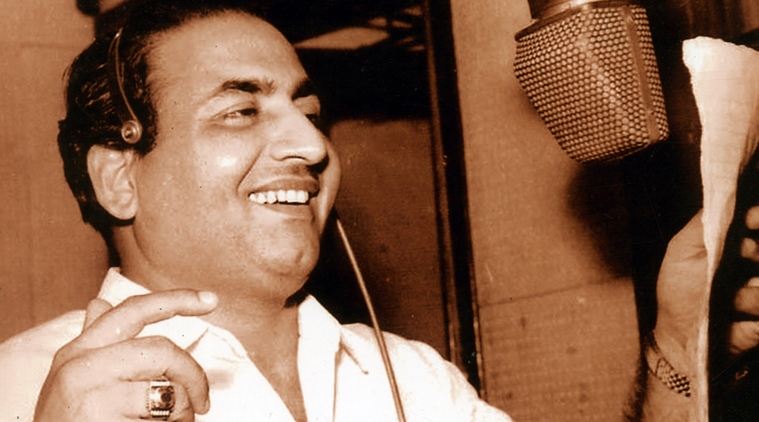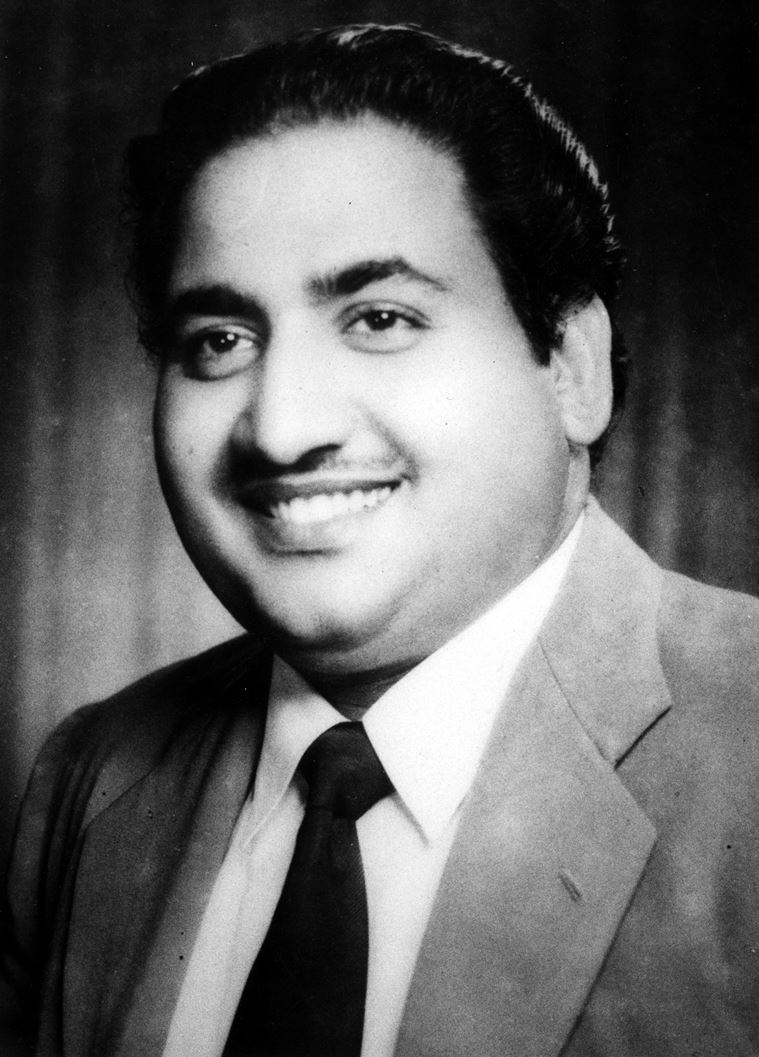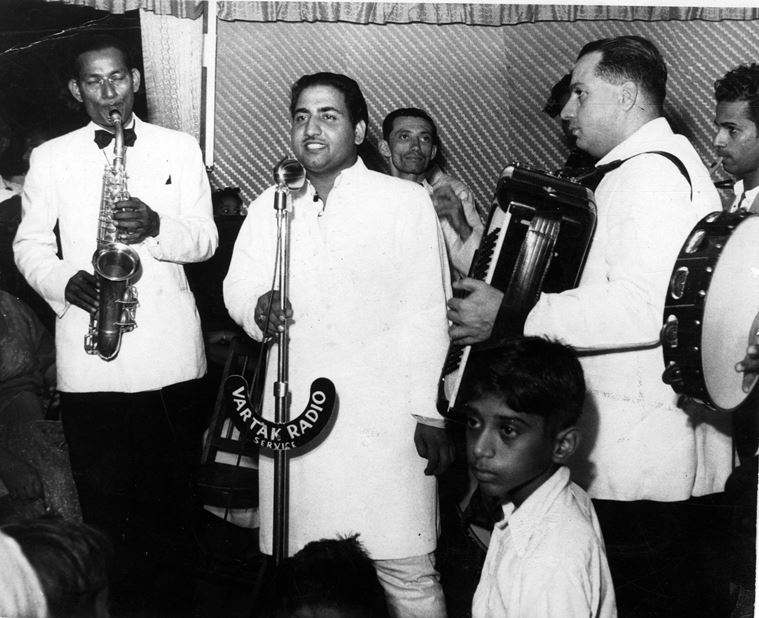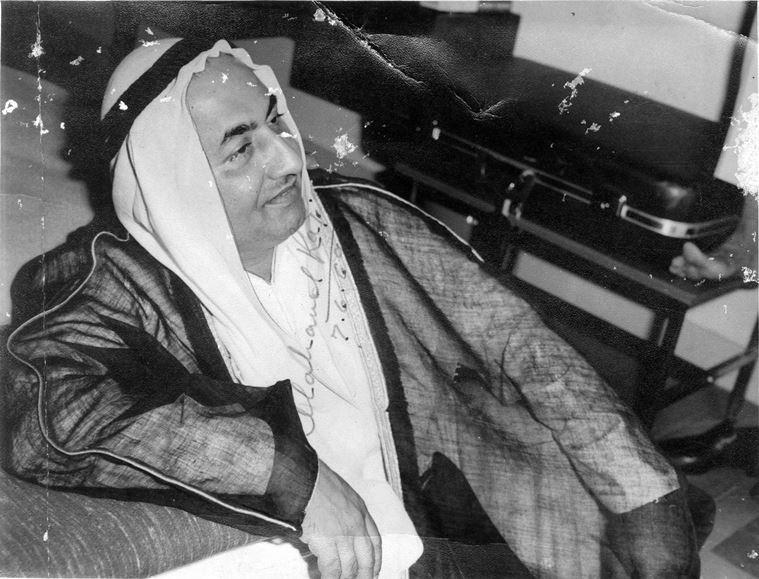Mohammed Rafi will remain the voice of India, but his songs belong to the entire world that embraced him and to all those who are filled with hope and optimism for the future, whenever they listen to his melodies.
Growing up with Mohammed Rafi songs was the norm for my generation, although Kishore-RD mania had reached a crescendo in the 70s. Since 2004, I started travelling out of India and have met many people of Indian origin, besides Africans and other Asians, who have been listening to Mohammed Rafi for at least three generations now. In 2004 while on a visit to Israel, I shared an apartment in Tel Aviv, with two young Jewish women from New York who watched Bollywood films on the Bombay channel, every evening. When Rajendra Kumar serenaded Asha Parekh with Husn wale, tera jawab nahin, my flatmates wanted to know if the ‘handsome’ actor was still alive and even though they could not grasp Hindi so well, they were in love with the voice of Mohammed Rafi. Suhani raat dhal chuki still remains a favourite among some Sri Lankan friends, and an Iranian student breaks into Aye mohabbat zindabad every now and then. A Ugandan-Indian colleague reminisces about Rafi and Lata’s incredible duet Jo wada kiya and a new Facebook friend from Trinidad often shares Rafi’s songs.
Such is the love and adulation for the legendary Rafi sa’ab, who during his lifetime, delivered live performances in West Indies, Fiji, US, UK, East Africa and other parts of the world, apart from his incredible playback songs. It is hard to put in words the joyful discoveries of Rafi singing in Maithili, Bhojpuri, Bengali, Tamil, Telugu or Punjabi. The fine nuances of Rafi’s repertoire have dominated many conversations across time and space. As we mark his 40th death anniversary today, we pay tribute to an artiste who sang over 7000 songs in several Indian as well as foreign languages and has inspired many singers including south Indian greats such as Yesudas and SP Balasubrahmanyam.
Mohammed Rafi was born in 1924 in Punjab, but his family moved to Lahore where he received formal music training from the Ustads, not without opposition from his strictly religious Muslim family. In 1944, he moved to Bombay, first singing in the chorus (for a mere 10 rupees) and then moving onto solo songs under the tutelage of legendary music director Naushad Ali. The rest, as they say, is history. There are heart-warming stories of an extremely humble, mild-mannered, soft-spoken and religious Rafi who was popular throughout the cinema world and beyond. The man whose songs popularized many heroes onscreen, hardly ever watched films himself, much to the annoyance of his family, till Deewar hit the theaters. He remained in awe of Amitabh Bachchan, the ‘superstar’. Not watching films meant he would very often not know who the song was filmed on. His generosity is legendary and included singing free of charge for his friends who turned producers, accepting lower fees on many occasions, raising money for temples, contributing zakat, singing at religious festivals, financial help to those who needed it and even getting medical equipment for local hospitals from his tours abroad.
It is a fact that the Mangeshkar sisters and especially Lata have been held to greater scrutiny (unfairly so) about their possible manoeuvrings that prevented talented young female singers from making a mark in Hindi cinema. However, those musically informed would perhaps opine that, if there was any one singer, who through his sheer versatility, perfect emoting, sublime voice and marvellous octave range actually marginalized a number of male singers of that era, it was undoubtedly Mohammed Rafi. Mukesh had once joked that if Rafi ran out of recordings, others like him would get a chance (the same Mukesh who often called Rafi at odd hours to express his appreciation and who encouraged his own son, Nitin Mukesh, to sing Rafi’s songs!). During those times, professional rivalries did not always translate into personal acrimony.
Attributing Rafi’s dominance to his own egotistic scheming would be a travesty, for his popularity rested on the sheer magic of his voice (on any actor) onscreen, taking the audience on a roller coaster of emotions. He worked with all the leading music directors of that era and ruled the market and popular charts like Binaca Geet Mala. His repertoire included songs of nationalistic fervour (Aye watan, aye watan; Kar chalein hum fida), romantic numbers (Jab dil se dil takrata hai; Is rang badalti duniya mein), expressions of tragedy (Aapke pehlu mein aake ro diye; Mili khaq mein mohabbat), comedic joys (Chhurri ban kaanta ban O my son; Jane kahan mera jigar gaya ji), songs of resistance (Jinhein naaz hai hind par; Sarfaroshi ki tamanna) to high end philosophies (Ye duniya mil bhi jaye to kya hai; Caravan guzar gaya). His Azaan, Naats and Sufi Qawwalis, Shabad Gurbani and devotional Hindu bhajans continue to provide spiritual solace to people across the world.
Despite this extraordinary and envious musical career, Rafi was not without his sense of insecurities, contradictions, quirkiness and regrets. A devout Muslim, he attributed his success entirely to the Almighty, but struggled with his religious identity, especially after he performed the Haj, believing that his singing went against the principles of Islam. He was constantly troubled by this thought, especially when certain mosque heads and Maulvis would return his charitable contributions on the grounds that he made a living off a job that was religiously forbidden. In times like these, he went off to London. Seeing him miserable, his children had to send him back to India, where he was counselled by the likes of Naushad and others urging him to consider his unique talent, a divine gift. Lack of his own formal education made him send his children for studies abroad, discouraging their Bollywood/singing aspirations in any form. Frequently changing bungalows was certainly a quirky thing he did, and one wonders how his family coped with frequent displacement.
His daughter-in-law Yasmin Rafi mentions that later in life, Rafi possibly regretted his position on the ‘royalty’ issue which led to the famous quarrel with Lata (the legends did not sing together for a few years). Filmmakers and music companies made huge profits on his songs while he lived off earnings that came as fixed fees determined by the producers of the film. Professionally, the increasing promotion of Kishore Kumar in the 70s bothered him, and there are enough anecdotes to confirm that Kishore’s unavailability was a major reason why Rafi managed to sing for Burman Dada in Guide and Aradhana. Burman also used Manna Dey very creatively for his classical numbers, pitting him against Rafi in Meri Surat, Teri Aankhen. The arrival of Mahendra Kapoor on the Bollywood scene, through a musical contest, also affected Rafi when Naushad made Mahendra Kapoor sing Chand chuppa aur taare dubey in the film Sohni Mahiwal. Broadcasting legend Ameen Sayani recalls that Naushad had to pacify Rafi saying that the song was only used in the background and not on the hero. Khaiyyam’s advocacy of Kapoor to his fellow composers Madan Mohan and Jaidev, reached Rafi who declined to work with him. A different matter that neither Madan Mohan nor Jaidev was convinced by Khaiyyam! Rafi also entered into a conflict with BR Chopra which provided an opportunity to Mahendra Kapoor to become the male playback voice of BR films. Rafi’s Filmfare awards in the 60s came for songs that were certainly not his best, but then he was mostly competing with himself.
Rafi’s death on 31st July 1980, at just 55 years, dealt a big blow to Hindi Cinema and left his fans grieving for years. He was at that time, rediscovering his voice and reconnecting with the audiences with several new hits. The traditions kept alive by his fans and followers tell the story of his enduring popularity and adulation. Musical shows dedicated to him are organized in different parts of the world, where Rafi fans sing his songs to honour his memory. Even in 2020, the latest releases still feature Rafi’s old classics in the background. There are many who demand Bharat Ratna for this legend, and perhaps the award itself would have acquired respectability, had they conferred it to him even posthumously. But we all know, awards are mere political doles for loyalty, having lost all meaning in contemporary times.
Remembering Rafi in times like these when Bollywood is going through its own churning means honouring the struggles of all those who enrich the cinema world with their artistry, talent and hard work, not because they have the pedigree and family connections. Rafi believed that singers could not be ‘made’ and that divine blessings alone had carved his destiny. For an artiste so adored, respected and influential in an industry where privileges and nepotism thrive, he refused to promote any member of his family or seek favours for himself. Mohammed Rafi will remain the voice of India, but his songs belong to the entire world that embraced him and to all those who are filled with hope and optimism for the future, whenever they listen to his melodies.
Aas ka suraj sath rahega
Jab sanson ki raahon mein
Gham ke andhere chhat jaenge
Manzil hogi baahon mein
Pyar tadapte dil ka thikana dhundega
Dil ka suna saaz tarana dhundhega
Teer-e-nigah-e-naz nishana dhundhega
Mujhko mere baad zamana dhundhega
? The Indian Express is now on Telegram. Click here to join our channel (@indianexpress) and stay updated with the latest headlines
For all the latest Entertainment News, download Indian Express App.
Source: Read Full Article








